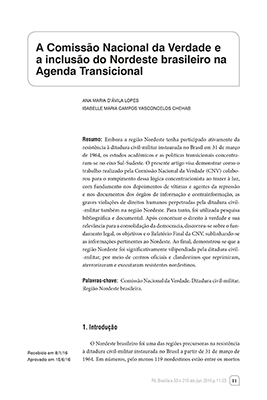A oscilação decisória no STF acerca da garantia da presunção de inocência: entre a autovinculação e a revogação de precedentes
Guilherme Bacelar Patrício de Assis
Resumo
O Supremo Tribunal Federal (STF) tem vacilado na definição do alcance da garantia constitucional da presunção de inocência. A controvérsia reside no estabelecimento do momento a partir do qual o condenado criminalmente pode começar a cumprir a pena. Nos últimos oito anos, o entendimento do STF mudou duas vezes. Em 2016, em quatro julgamentos, o STF asseverou ser possível o início da execução da pena após a condenação por um tribunal de segundo grau, mesmo que haja recurso pendente de apreciação por um tribunal superior. Contudo, ainda não se pode dizer que a Corte tenha assentado uma orientação definitiva sobre esse assunto. Uma nova mudança não está fora de cogitação. A oscilação decisória no STF gera insegurança jurídica, desigualdade e dificulta que o Tribunal cumpra suas principais funções de conferir higidez, coesão e estabilidade ao ordenamento jurídico constitucional e de elaborar precedentes confiáveis a serem seguidos pelos demais juízes e tribunais.
Palavras-chave
Suprema Corte. Presunção de inocência. Stare decisis. Mudança de jurisprudência. Segurança jurídica.
Título, resumo e palavras-chave em inglês
THE VOLATILITY IN THE BRAZILIAN SUPREME COURT’S DECISIONS ABOUT THE GUARANTEE OF PRESUMPTION OF INNOCENCE: BETWEEN SELFCONSTRAINT AND OVERRULING
ABSTRACT: The Brazilian Supreme Court (STF) has hesitated on ruling the boundaries of the constitutional guarantee of the presumption of innocence. The controversy lies in establishing the moment from which the convicted defendant can start serving the sentence. In the last eight years, the STF changed its position on such matter twice. In 2016, in four cases, the STF ruled that is possible to execute the sentence after a conviction in a criminal case passed by a court of appeals even if there is a special or an extraordinary appeal pending review in the highest courts of Brazil. Nevertheless, it cannot be said that the Court has settled a definitive guidance on this issue yet. A new overruling is not out of the question. The volatility in the Brazilian Supreme Court’s decisions creates legal uncertainty, inequality and hinders the Court from achieve its main functions of providing consistency, cohesion and stability to the legal system and establishing reliable precedents to be followed by other judges and courts.
KEYWORDS: SUPREME COURT. PRESUMPTION OF INNOCENCE. STARE DECISIS. OVERRULING. LEGAL CERTAINTY.
Como citar este artigo
(ABNT)
ASSIS, Guilherme Bacelar Patrício de. A oscilação decisória no STF acerca da garantia da presunção de inocência: entre a autovinculação e a revogação de precedentes. Revista de informação legislativa: RIL, v. 55, n. 217, p. 135-156, jan./mar. 2018. Disponível em: <http://www12.senado.leg.br/ril/edicoes/55/217/ril_v55_n217_p135>.
(APA)
Assis, G. B. P. de (2018). A oscilação decisória no STF acerca da garantia da presunção de inocência: entre a autovinculação e a revogação de precedentes. Revista de informação legislativa: RIL, 55(217), 135-156. Recuperado de http://www12.senado.leg.br/ril/edicoes/55/217/ril_v55_n217_p135
